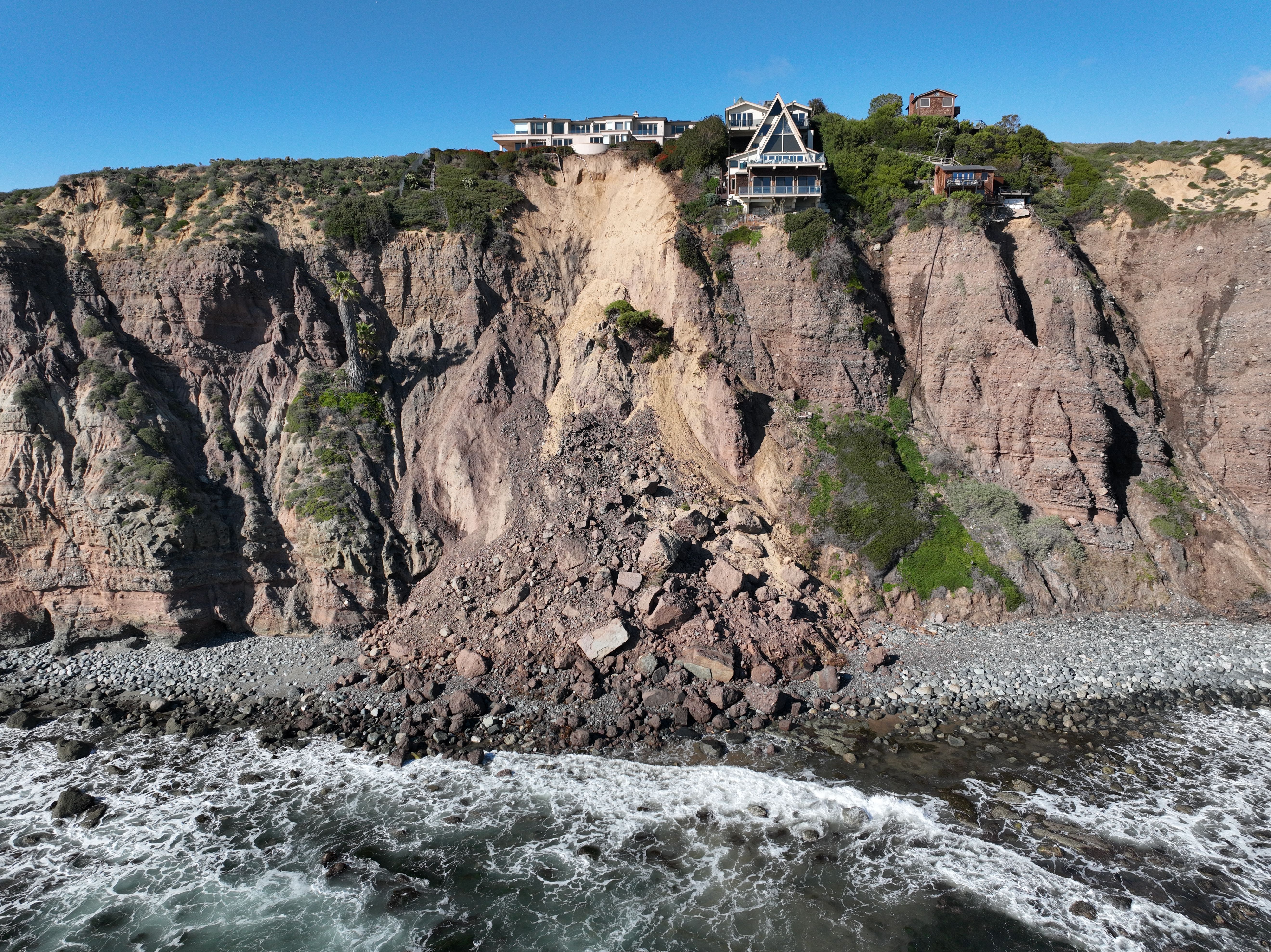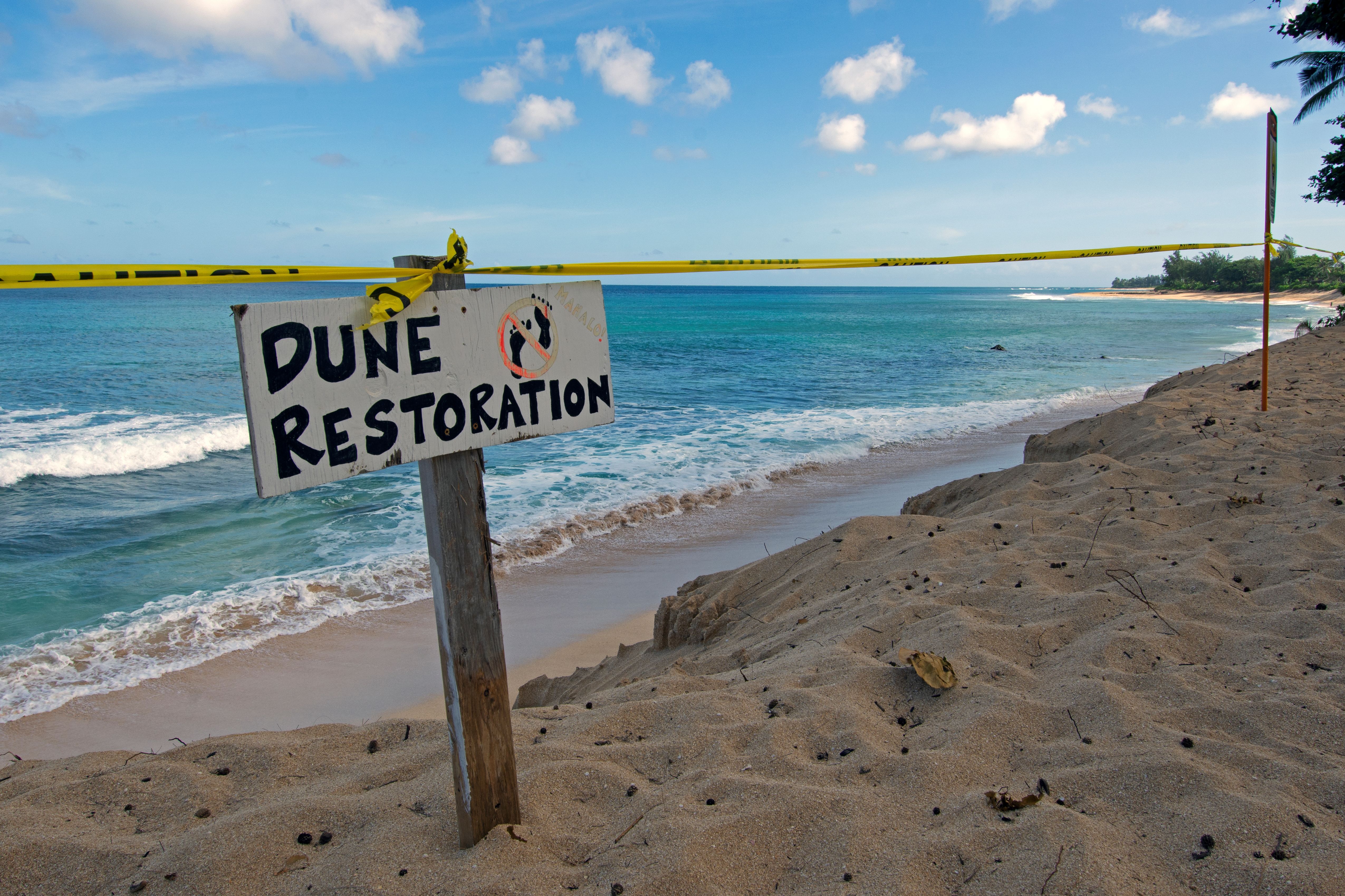A stretch of beach that's a no-go zone after a sixth house collapsed into the ocean on the Outer Banks of North Carolina in four years has put the issue of U.S. coastal erosion into focus.
Why it matters: "In general, most of the U.S. east and Gulf coasts are affected by coastal erosion," notes Tulane Department of River-Coastal Science and Engineering's Sönke Dangendorf, who led a 2023 study on how sea levels in these regions have been rapidly rising since 2010 — in some cases at rates "unprecedented in at least 120 years."
- Sea level rise is one of the most tangible present-day effects of human-caused climate change that's impacting the U.S., as Axios' Andrew Freedman notes coastal flooding has become far more common and damaging in the past few decades.
Driving the news: "The Outer Banks, due to their remote, exposed location have always been a very dynamic place characterized by a lot of erosion, but climate-related sea-level rise is significantly worsening the situation for those places," noted Dangendorf in an email.
- About a quarter mile of beach in this area remains closed as of Monday morning following the collapse of the house at 24131 Ocean Dr. in Rodanthe, N.C., last Tuesday, per the National Park Service, which manages the Cape Hatteras National Seashore.
- The NPS urged visitors in a statement to "consider wearing hard-soled shoes and remain cautious on the beach and in the water in front of Rodanthe as pieces of debris continue to wash ashore."
- Christopher Hein, Wakefield associate professor of marine science, told Axios Rodanthe is "particularly precariously" placed along a narrow portion of Hatteras Island, "where houses are built close to the beach with small (if any) dunes protecting them" from waves and storm surge.

By the numbers: Coastal erosion contributes to an estimated $500 million in coastal property loss and damage in the U.S. every year, according to government data.
The big picture: Other coastal erosion hot spots include parts of California, such as Dana Point, south of Los Angeles, which are experiencing similar threats to structures, Hein said in an email. However, these houses "are built on cliffs, which are actively eroding from underneath."
- "I have seen similar issues to Rodanthe on northern Plum Island, northern Massachusetts, and nearby Salisbury Beach," said Hein, who works at the Virginia Institute of Marine Science, William & Mary.
- Salisbury made headlines in March when protective sand dunes built near properties in a beach nourishment initiative (the process of pumping sand onto shorelines to combat erosion) washed away.
- Erosion has badly hit Cape Cod and the New Jersey shoreline, while more than half of Florida's 825 miles of beaches are classified as "critically eroded."
- Chronic erosion in Hawai'i, which saw a North Shore home on the island of Oahu collapse into the sand in March, is projected to see 20 feet of shoreline by 2050.

State of play: University of Hawai'i geologist Chip Fletcher, who co-authored that study's projections, said the focus has for too long been on saving built assets, rather than preserving beaches.
- "When you protect homes from erosion, you end up destroying the beach, because when sea level is rising ... the beach has to migrate landward," Fletcher told Axios by phone.
- If you put sandbags or a seawall up, Fletcher said it prevents the beach from migrating and results in its destruction.
Zoom in: Some authorities have stepped up beach protection efforts. Home owners in Hawai'i have been hit with hefty fines for violating a state law prohibiting people from placing sandbags on public land due to their contribution coastal erosion.
- And the National Park Service has in recent months bought homes at risk from coastal erosion in Rodanthe. Local officials told the Washington Post last week they expect more houses to fall.
- The decision to allow houses to collapse in order to protect beaches is the right strategy because "in the end, the ocean is going to win, because sea level rise is going to continue for many, many centuries," Fletcher said.
The bottom line, via Tulane's Dangendorf: The ocean has a huge inertia and reacts very slowly to global warming.
- "Even if humanity would manage to get down to net-zero emissions soon (which is highly unlikely), we would already be committed to a multi-century sea-level rise from past emissions and warming," Dangendorf said.
- "Therefore, we really need to adapt to sea-level rise related impacts such as coastal erosion and flooding. Which adaptation option is the best (protection, accommodation, or retreat), depends on location and the associate socio-economic values," Dangendorf added.
- "At the same time, mitigation (in terms of reducing greenhouse gas emissions) can help us to avoid dangerous and unmanageable sea-level rise by the end of this century and beyond."
Go deeper... Study: Sea otters' insatiable appetites help limit coastal erosion







